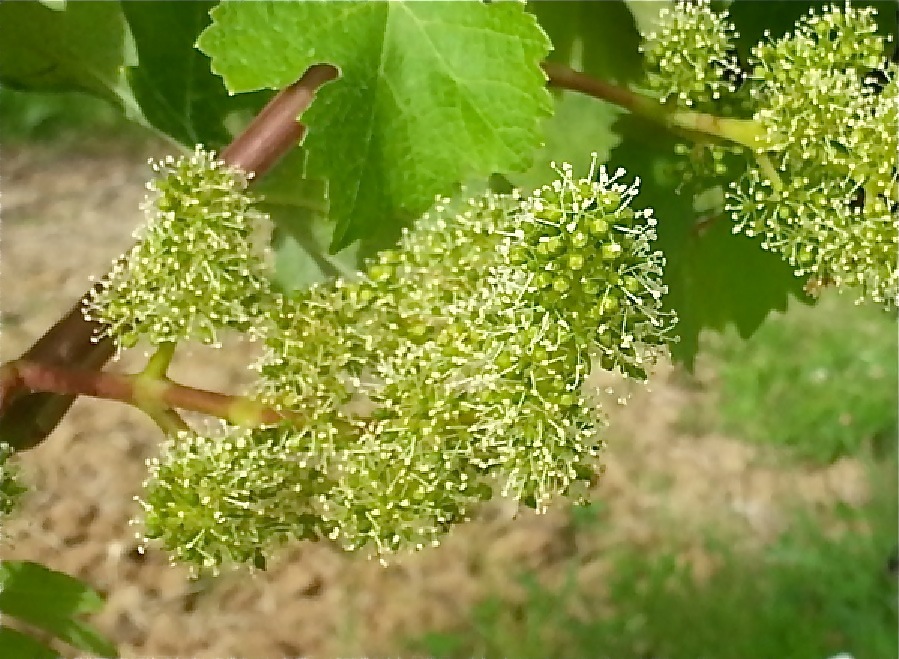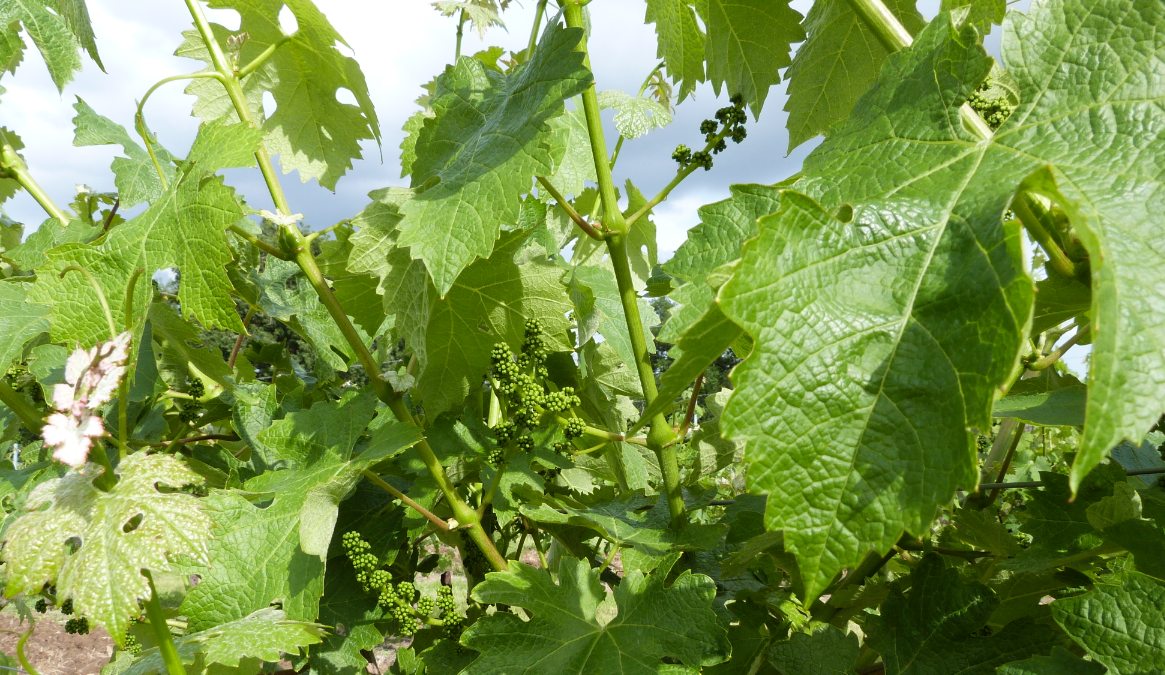The farmer’s wife: “Ca me fatigue. Everywhere this green, starting up all over again. It’s exhausting.” I laugh automatically and compliment her self-effacing wit. She with her lifetime of fieldwork, not to mention green thumb and meticulous flower garden.
But she won’t have it. She insists her favorite season is the onset of winter.
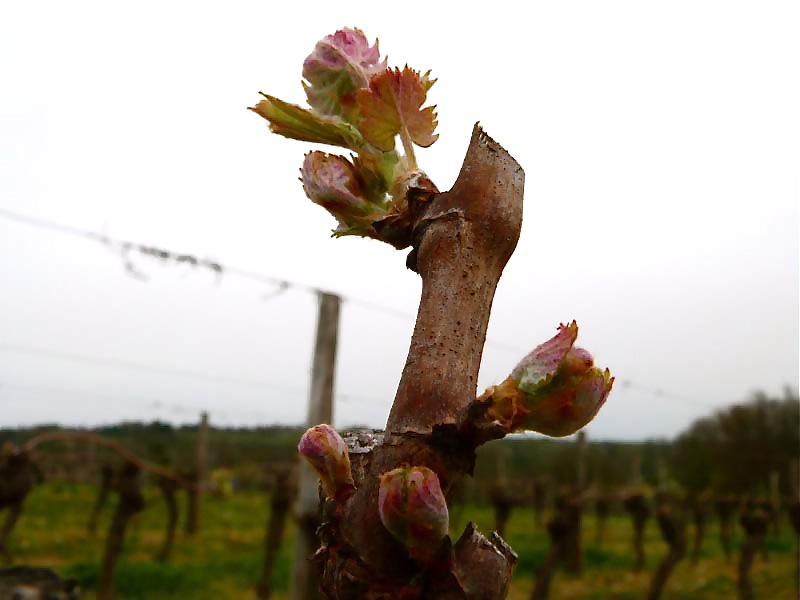
Hard to fathom. What could be more heartening than the first signs of spring?
Intoxicating, thrilling, joy-inducing… one can think of a dozen words for typical reactions to April. But “fatigue”? Is she in a secret club with T.S. Eliot?
Everywhere we turn, the world is lush with baby green. Some magic wand was waved over cold, brown earth, and suddenly there are tendrils and tufts filling in the stark winter silhouettes. It’s the miracle all over again.
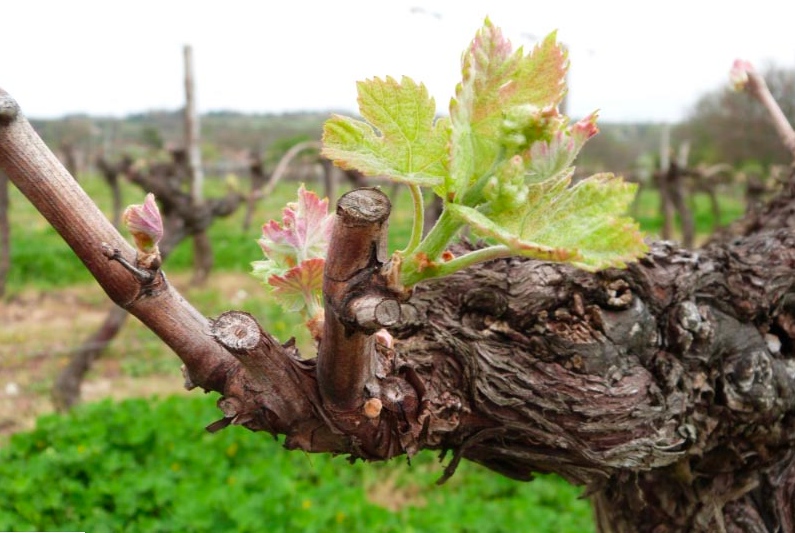
I touch the first blossoms in the vineyard and imagine the work ahead of us. With a few seasons under our belt, we’re far from veterans, but toughened enough to know that today’s optimism won’t shield us from a capricious climate. We were heart broken when the 2013 harvest didn’t meet our standards despite our hard work. The wine was sold by the tank to a broker; it was like parting with a loved one on sad terms.
There is an old saying – “To be a farmer you must have strong kidneys.” In French folk wisdom, the kidneys (les reins) symbolize courage and fortitude. As one season may be feast, and the next famine, best to have strong kidneys indeed.
Last night I indulged in a ritual springtime conversation with the farmer. I say what I always say: “This will be a great year, don’t you think?” He says what he always says. “Nothing is certain.” I say: “We can always hope.” He lowers his head and shifts his weight.
This year I understand the heaviness. In one exuberant blossom we see weeks and months ahead, heavy with tasks and risks; the weight of the cycle starting all over again. He clears his throat and quotes his father, a very kind farmer who died of kidney failure. “Tant qu’il y a de la vie, il y a de l’espoir.” (“Where there is life, there is hope.”)
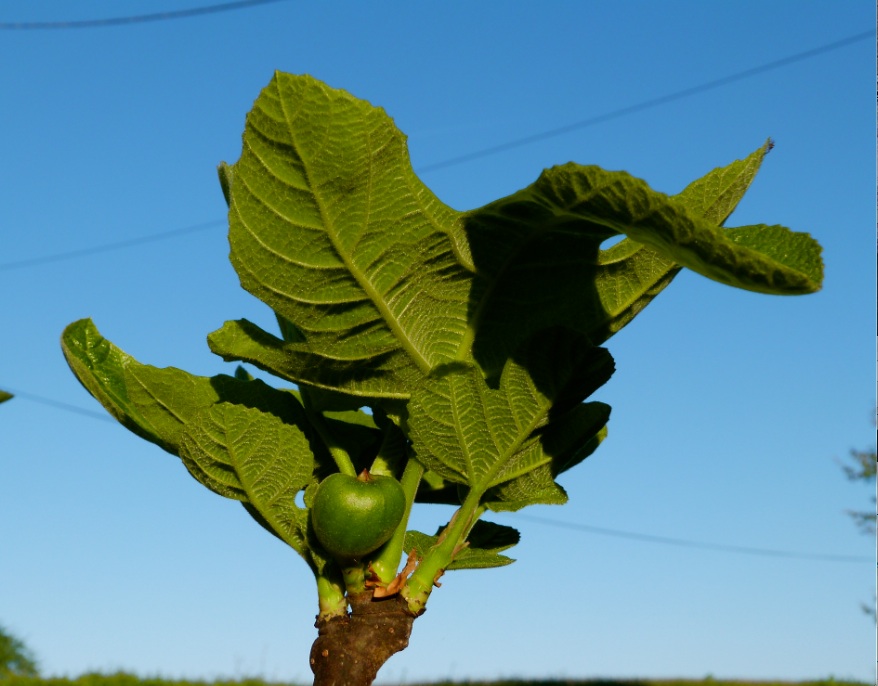
We change subject. He talks about his greenhouse, his favorite place at the end of each day. The place where he coddles his baby plants from germination to adolescence until they are strong enough to root in the big earth. “Ca me repose.” Like a song he repeats this phrase three times in the course of our conversation. “Ca me repose. Ca me repose.“ So much of the farmer’s wife’s sigh is about the anticipated weariness of the future months. A built-in wariness. But in the greenhouse there is power. The plants are still under protection. I see him there, energizing his vital organs against inclemency; plunging into all this fragile, heavy, green hope and finding a moment’s rest.

